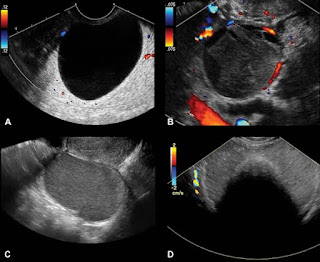Being diagnosed with a benign ovarian cyst can be concerning, especially when it comes to the possibility of surgery and the health of your ovary. It’s natural to have questions like, "Will I need to have my ovary removed?" or "Will surgery damage my ovary?" Let's explore these concerns in more detail to help put your mind at ease.
Do All Benign Ovarian Cysts Require Surgery?
Not all benign ovarian cysts require surgery. In fact, many of these cysts can resolve on their own, particularly if they are small and asymptomatic. Your doctor will likely monitor the cyst over time with follow-up ultrasounds to see if it shrinks or disappears. If the cyst is asymptomatic and doesn't grow, it may not require any intervention at all.
When Is Surgery Considered?
Surgery may be recommended if the cyst is large, causing symptoms, or shows signs of complexity (such as irregular shape or solid areas). The decision to operate is usually made to alleviate symptoms, prevent complications like rupture or torsion, or to rule out any potential malignancy.
Will Surgery Involve Removing the Ovary?
The good news is that the goal of surgery for benign cysts is often to preserve the ovary. This is achieved through a procedure called a cystectomy, where only the cyst is removed, leaving the healthy ovarian tissue intact.
In some rare cases, if the cyst is large or complex, or if there's a concern about its nature, more extensive surgery may be necessary. This could involve the removal of the ovary, but this is generally considered a last resort, especially for benign cysts.
Will Surgery Damage My Ovary?
Modern surgical techniques aim to minimize damage to the ovary during a cystectomy. Surgeons use delicate instruments and superior imaging to carefully remove the cyst while preserving as much of the healthy ovarian tissue as possible. The goal is to ensure that your ovary continues to function normally after the procedure.
Of course, like any surgery, there are risks involved, but these are generally low, especially in experienced hands. Your surgeon will discuss the specific risks and benefits with you before any procedure is planned, so you can make an informed decision.
If you’ve been diagnosed with a benign ovarian cyst, it’s important to remember that surgery is not always required, and when it is, preserving the ovary is usually a priority. Always discuss your concerns and options with your gynaecologist, who can guide you through the decision-making process based on your individual case.


Comments
Post a Comment